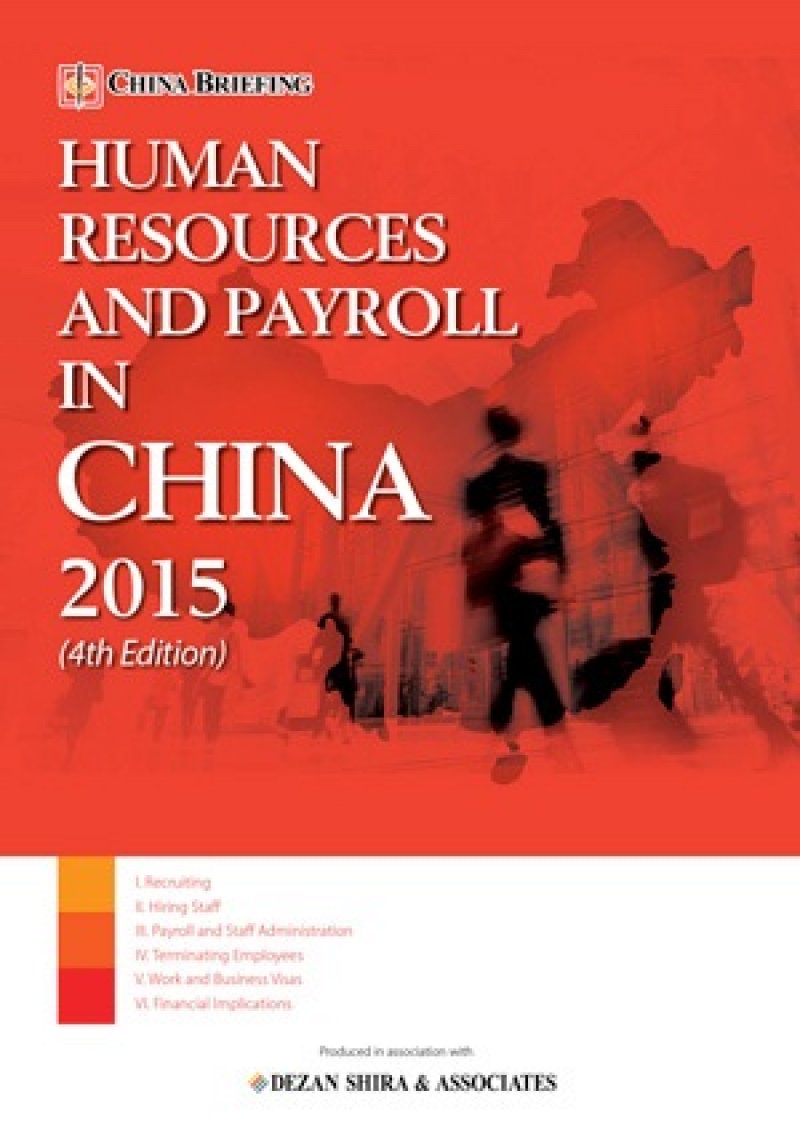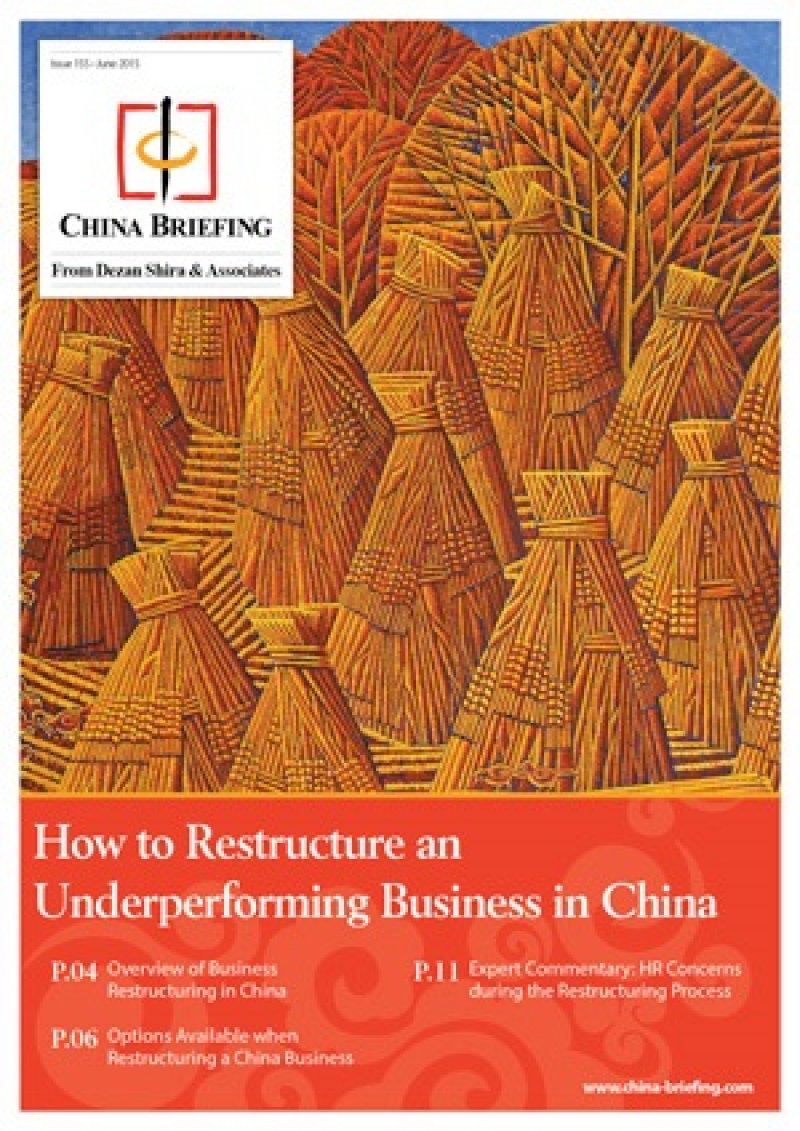The Housing Fund in China – What Investors Need to Know
 By Andrea Tonini
By Andrea Tonini
In China, the Housing Fund is a particular kind of social insurance that stands out from the other types of welfare, both in the way it is regulated and administered. Established in 1999, the fund allows Chinese employees to save money towards purchasing their own house, thus representing one of the means to ensure social security and stability in the country. As with other welfare schemes, the key points of the Housing Fund system are legislated at the national level – Regulations on Management of Housing Provident Fund. However, the regional governments have far reaching autonomy in regulating the Housing Fund in their own jurisdictions, which includes setting the contribution rates.
The Housing Fund and other social insurances
The welfare and social security system is regulated by the Ministry of Human Resources and Social Security (MOHRSS), which is also responsible for the national labor policy regulations. The MOHRSS regulates a welfare scheme consisting of Five Social Insurances: the maternity, medical, pension, work-related injury and unemployment insurances.
The Housing Fund is generally included when discussing the Chinese welfare system, even though the Housing Fund is administered separately, by the Ministry of Housing and Urban-Rural Development, and the local Housing Fund Bureaus. The main difference with the other social schemes is that the Housing Fund has no social pool, since the entire amount goes directly to employees’ personal Housing Fund accounts. Furthermore, the balance can only be withdrawn for down payment, purchase, construction and renovation of a house, or to subsequently pay back a mortgage. After an employee’s retirement, the remaining balance can be redeemed and used at will.
Contribution
Just like the other social insurances, both employers and employees must make regular contributions into the Housing Fund. The employer has to contribute between 5 percent and 25 percent of the employee’s average monthly salary of the previous year (i.e. from 1 January to 31 December). The actual percentage differs per city or province. The employee generally has to deduct from his wage an equal contribution, although again, this may differ per city. The monthly premium is determined by the employee’s average wage in the previous year and the statutory contribution ratio. The statutory maximum contribution amount is calculated based on the average monthly wage in the city or province for the previous year.
![]() RELATED: The Intricacies of Maternity Leave across China: Regional Differences
RELATED: The Intricacies of Maternity Leave across China: Regional Differences
If the employer fails to make contributions to the employee’s Housing Fund account, the Housing Bureau will issue a reminder with a deadline for payment. If the employer does not make the corrections within the stipulated deadline, the Housing Fund Bureau will appeal to the People’s Court to enforce the order.
In general, the employee is not liable for individual income tax on the Housing Fund contribution made by the employer. This changes if the contribution exceeds three times the average salary of the city or province. In that case, the amount in excess of that is subject to individual income tax.
Procedure
Employer registration
Companies that are newly set up have to register at the local Housing Fund Bureau for the Housing Fund contribution within 30 days of their establishment. The documentation required includes the company’s business license, its enterprises code certificate and identity document of the Legal Representative. After the application has been approved, the company will receive a special account number for payments to the fund. Within 20 days of registration, the company has to bring the approved documents to an eligible bank, in order to automate Housing Fund contribution payments.
When new staff is hired, the employer needs to register them with the Housing Fund Bureau within 30 days from the date they start working. In some first-tier cities – such as Shanghai and Beijing – modification of staff details can be made online. However, companies established in other cities may need to send a member of the HR department to the local Housing Fund Bureau to manually update the employees’ information.
![]() RELATED: Social Security in China: What a Foreign Company Needs to Know
RELATED: Social Security in China: What a Foreign Company Needs to Know
If the employer fails in opening the employee’s Housing Fund account or does not complete the registration to enable the contribution to the account within the stipulated deadline, a fine between RMB 10,000 and RMB 50,000 will be imposed.
Employee withdrawal application
When the employee wants to withdraw the money from his personal Housing Fund, the employer has to verify the application and issue a withdrawal certificate. Thereafter, the employee submits the withdrawal application to the Housing Fund Bureau, which will approve or reject it within three days of submission. Local regulations vary widely on Housing Fund withdrawals however.
Conclusion
The Housing Fund is a unique feature of the Chinese welfare system, allowing employees to save money to pay for and maintain their own accommodation. Recent reforms have made it possible to use the savings in the fund for other purposes as well, such as urgent medical treatment. However, the implementation of certain Housing Fund regulations has given rise to unrest in certain areas too. Recently, workers in Zhongshan and Dongguan protested against local regulations that make it more difficult to cash out from the Housing Fund after resigning from one’s job.
Employers should ensure to pay the Housing Fund percentage to their local employees, and carefully check what regulation is in effect in the cities where their businesses are set up.
|
Asia Briefing Ltd. is a subsidiary of Dezan Shira & Associates. Dezan Shira is a specialist foreign direct investment practice, providing corporate establishment, business advisory, tax advisory and compliance, accounting, payroll, due diligence and financial review services to multinationals investing in China, Hong Kong, India, Vietnam, Singapore and the rest of ASEAN. For further information, please email china@dezshira.com or visit www.dezshira.com. Stay up to date with the latest business and investment trends in Asia by subscribing to our complimentary update service featuring news, commentary and regulatory insight. |
![]()
 Human Resources and Payroll in China 2015
Human Resources and Payroll in China 2015
This edition of Human Resources and Payroll in China, updated for 2015, provides a firm understanding of China’s laws and regulations related to human resources and payroll management – essential information for foreign investors looking to establish or already running a foreign-invested entity in China, local managers, and HR professionals needing to explain complex points of China’s labor policies.
 Employing Foreign Nationals in China
Employing Foreign Nationals in China
In this issue of China Briefing, we have set out to produce a guide to employing foreign nationals in China, from the initial step of applying for work visas, to more advanced subjects such as determining IIT liability and optimizing employee income packages for tax efficiency. Lastly, recognizing that few foreigners immigrate to China on a permanent basis, we provide an overview of methods for remitting RMB abroad.
How to Restructure an Underperforming Business in China
In this issue of China Briefing magazine, we explore the options that are available to foreign firms looking to restructure or close their operations in China. We begin with an overview of what restructuring an unprofitable business in China might entail, and then take an in-depth look at the way in which a foreign company can go about the restructuring process. Finally, we highlight some of the key HR concerns associated with restructuring a China business.
- Previous Article Accident du Travail en Chine: Que Faire?
- Next Article Assouplissement de la Politique d’Immigration à Hong Kong














